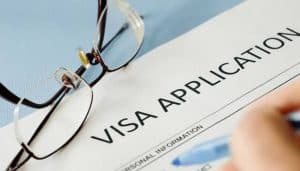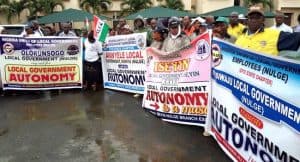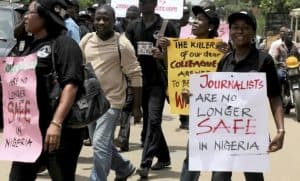
Any dictionary that defines Nigeria would say a nation where more than half of its population lives below the poverty line, where inflation in food prices keeps soaring and the only booming business is either politics or kidnapping-for-ransom.
Strong and sustainable economic growth is the goal of every nation.
Why would a country with abundant resource ranks as the poorest nation in the world? The Cambridge English Dictionary says a recession is “the period when the economy of a country is not doing well, industrial production and business are at low level and there is highest rate of unemployment.” It is characterized by a decline during which trade and industrial activity are minimal and generally identified with a fall in Gross Domestic Product in two consecutive quarters. This is worst for a country that has everything to be the richest in the world.
Unfortunately, the government’s commitment to restore the economy’s stability remains subtle despite the damming effects of COVID-19 on the economic life of the people.
These days, any dictionary that defines Nigeria as it relates to its economy would say a nation where more than half of its population living below the poverty line, where inflation in food prices keeps soaring and the only booming business is either politics or kidnapping-for-ransom.
Unfortunately, the government’s commitment to restore the economy’s stability remains subtle despite the damming effects of COVID-19 on the economic life of the people.
The country at the moment experiencing a slowdown in the petrochemical sector — an area that used to be lucrative. Gas is now a dilemma vulnerable citizens find difficult to cross. Though an injury inflicted on the oil market would navigate a tremendous decline in government revenue and finance, just the same way the oil market boom would boost the country’s economy. Unfortunately, Nigeria which has found its place among the most corrupt countries could not benefit from this. Corruption and greediness leave a big topple on economic activity.
The Nigeria we hope for is where goods are affordable, where people would be awarded based on their good works and contributions to public growth,
Things turned austere in 2016 when the price commodity brought adverse consequences on Nigeria’s economy. This gave birth to a recession that skyrocketed the already high rate of unemployment. Meanwhile, the downgrading economy of the country is triggered by nothing other than mismanagement of resources. The country could be so endowed even more than the civilized countries in the world. The difference is in the kind of leaders we choose to run our lives.
The Nigeria we hope for is where goods are affordable, where people would be awarded based on their good works and contributions to public growth, a country where the government’s main priority would be to secure lives and property of the citizens and a country where the rule of law is strictly practiced.
If no swift action is implemented, Nigeria would battle an uncertain destination where there would be no end and no future to ameliorate the scrooge.
Nigerians should not allow those nefarious leaders to keep driving the vessel of the country as they wish. As a good countryman, every individual has a right to make their country a better place. Educated Nigerians should take priority on community service and orientation of the locals on how the leaders over the years have squandered the people’s treasury.
If no swift action is implemented, Nigeria would battle an uncertain destination where there would be no end and no future to ameliorate the scrooge.






